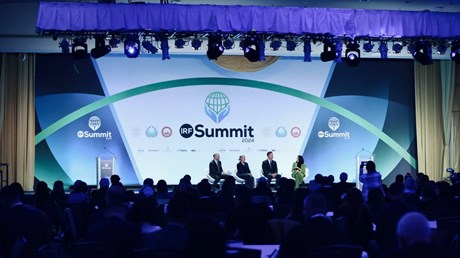Annual IRF gathering puts the spotlight on worsening persecution of people of faith around the world.

The message that international religious freedom advocates have been sharing all along—that prioritizing religious freedom is crucial for human flourishing and national stability—is increasingly catching on, with this year’s International Religious Freedom (IRF) Summit reflecting the growth of their global, interfaith movement over the past five years.
The summit, held this week in Washington, DC, has been a key part of mounting momentum around bringing more attention to religious persecution around the world, with sessions this year addressing crises from Nigeria to Nicaragua.
“In so many of the global crises around the world, there’s a religious freedom dimension,” said Jeremy Barker, director of the Middle East Action Team for the Religious Freedom Institute, who has seen greater recognition for the IRF cause over the past five years. “It’s not marginal but mainstream.”
Last year marked the 25th anniversary of the International Religious Freedom Act, which required the US State Department to make religious freedom an essential aspect of its foreign policy focus, and the United States has continued to see public victories for the cause. Former president Donald Trump nominated an IRF ambassador within six months, something his predecessors took many more months to do, and elevated the position of the IRF office within the State Department.
The Trump administration also put on the initial two IRF summits as government-hosted ministerials, followed by other nations including Poland, the United Kingdom, and Czechia. (The ongoing US summit is now organized by civil society.) Former IRF ambassador Sam Brownback also oversaw the launch of the International Religious Freedom or ...
from Christianity Today Magazine
Umn ministry




.gif)

.gif)
.gif)
